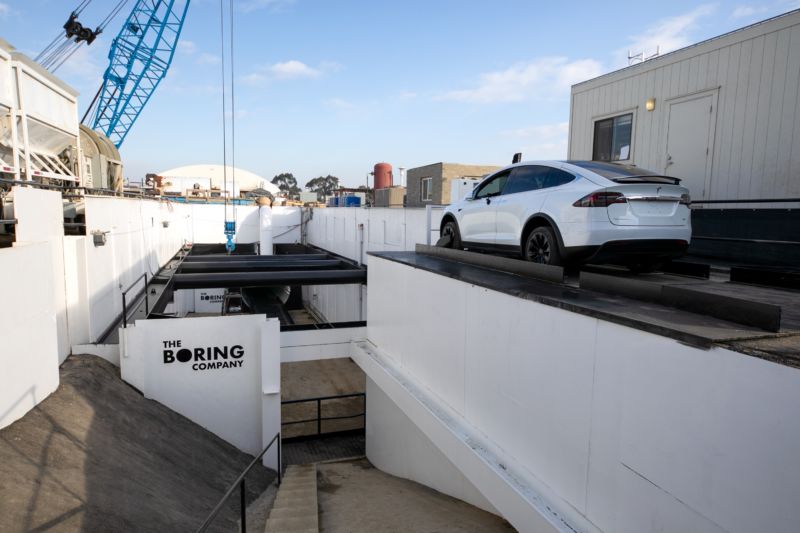
Virginia state transit officials are telling The Boring Company “thanks but no thanks,” at least for now. The Virginia Mercury reported yesterday that the state’s chief of rail transportation, Michael McLaughlin, was not sufficiently impressed by his recent visit to Elon Musk’s test tunnel in California to recommend that the state work with the startup.
“It’s a car in a very small tunnel,” McLaughlin reportedly told the state’s Transportation Board public transit subcommittee this week. “If one day we decide it’s feasible, we’ll obviously come back to you,” he added.
Virginia’s Transportation Board has been contemplating billion-dollar upgrades to the state’s more populated areas, but the promise of The Boring Company is opaque enough that officials are hesitant to engage with the company, even at the cut-rate prices that founder Musk has promised.
Musk has said that The Boring Company will revolutionize tunneling through boring-machine innovation. The company opened a very rough and bumpy tunnel, which had been dug under the SpaceX campus, in December. Originally, the company said it would send passengers through its small tunnels on electric skates designed for travel up to 150mph. At the December tunnel reveal, the company said that it would primarily accommodate standard electric vehicles, like Teslas or Chevy Bolts of Nissan Leafs (Leaves?). Internal combustion engines would not be permitted in the tunnel.
In February, Musk tweeted that the company was working on improving its test tunnel. “Focus right now is getting to high speed, tight follow distance in test tunnel,” the CEO tweeted. He said that “Line-Storm,” The Boring Company’s second-generation boring machine, would start getting updates “in a month or so.”
The Chicago express line
But even as The Boring Company says it’s trying to improve on tunneling efficiency and design, Chicago may be looking to take a step back from the express line that Mayor Rahm Emanuel pledged to build with the company. The mayor’s office announced in June 2018 that it would work with The Boring Company to build a long-awaited express line between O’Hare International Airport and the Windy City’s downtown area.
The next step for the company and the city was supposed to be a negotiation over a contract to build the express line, which the City Council would vote on.
But currently, the two front-runners for Chicago mayor—Lori Lightfoot and Toni Preckwinkle—have cooled on The Boring Company, and a contract may not end up in front of the City Council. According to comments made to The Verge in early March, Lightfoot said “we don’t need an O’Hare Express” while Preckwinkle promised to “pause” the tunnel plans if she were elected.
Other cities
In Los Angeles, The Boring Company recently abandoned its plans to build a second test tunnel under Interstate 405 after residents sued the company. But LA Mayor Eric Garcetti has been a stalwart proponent of Musk’s tunnel endeavors, and The Boring Company is still slated to build the Dugout Loop, a one-way test tunnel that will take people from a nearby LA Metro Station to Dodger Stadium.
In Las Vegas as well, the Board of Directors of the Las Vegas Convention and Visitors Authority (LVCVA) voted to move forward with a recommendation to work with The Boring Company to build a two-mile people-mover under the Las Vegas Convention Center.
According to Engineering News-Report, “The Boring Company and the LVCVA will now work to determine specific design, construction, and operational plans and negotiate a contract for final approval by the LVCVA board in a subsequent meeting anticipated by June 2019.”
https://arstechnica.com/?p=1478853

